Editor’s note: As our divided nation tries to heal after years of divisiveness, we can look to the Sisterhood of Salaam Shalom as an example. Because we feel the efforts of the founders can inform and inspire all of us, we are re-publishing this story of hope and friendship.
***
Amidst the crudités and tasty Vidalia onion dip that hostess Fern Jurgrau-Schiffman had set out, Adla Karim placed baklava she had just made in her kitchen. Other women in this living-room meeting of the Sisterhood of Salaam Shalom had tasted Adla’s baking before, so hands quickly reached out for the lightly sweetened, perfectly flaky pastry before them. Food has a way of crossing cultures, and here it was working to bring Jewish and Muslim women together. “Maybe we could bring more women into the group with a cooking class from Adla?” suggested my friend Marsha Malberg.
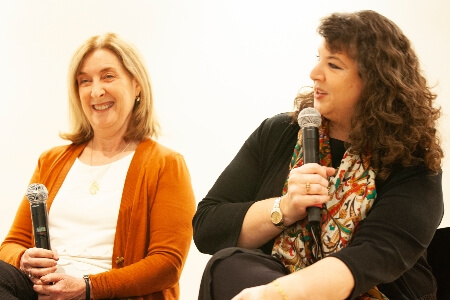
On the drive over to this meeting of the Hillsborough, New Jersey, chapter of the Sisterhood, Marsha, who is Jewish, had spoken to me about insights she was gaining from the group. “One young woman, who is a Muslim member, was at a drugstore one evening with her two small children. They were playing in the aisle as a man tried to get by. She said ‘Excuse me,’ and moved the children. He started to attack her verbally—and loudly. She called her husband asking for advice and he told her to leave the store as quickly as possible,” Marsha said. “These are things that never get into the newspapers. I’m sure her friends know about it, but in the past, I wouldn’t have. Now I do because I’m one of her friends.” This kind of friendship is the goal of the Sisterhood, which wants to raise awareness and foster interfaith understanding.
The six women at this meeting grew closer as they brainstormed ways to involve more Muslim women in their newly formed chapter. Their goal was a group of 12 women—six Muslim and six Jewish. In this current climate of strong opinions, many people struggle to find any sort of common ground, and Muslims and Jews have the seemingly endless Israeli-Palestinian conflict in their cultural histories to divide them. But here, conversing around a food-laden coffee table, they refused to be divided. The rhetoric of hatred against Muslims and Jews that exists not only in the warring Gaza territory but also right here in America must end. The Sisterhood of Salaam Shalom, with its over 3000 members in the United States and Canada, aims to be an all-female bulwark.
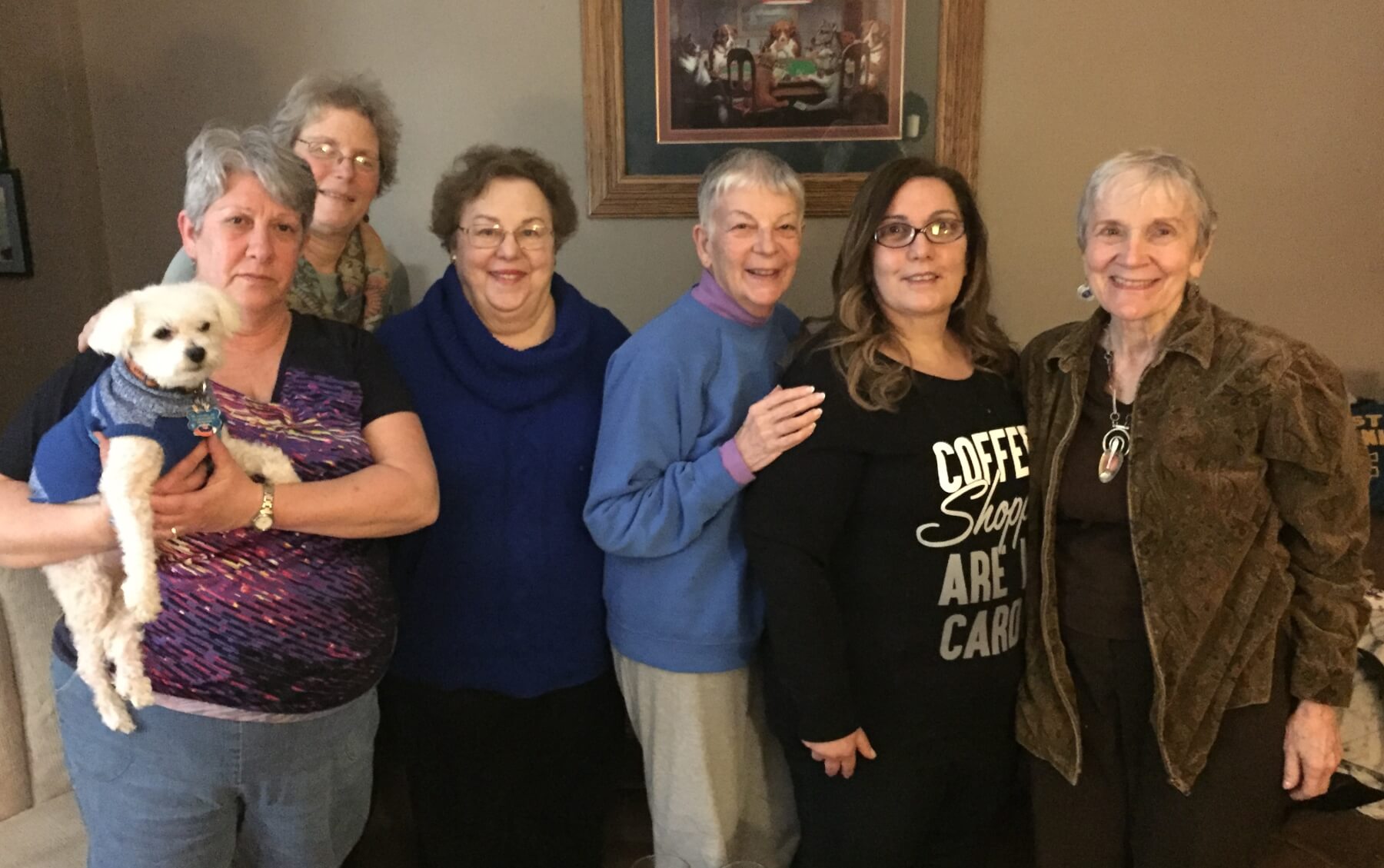
The six Muslim and Jewish members of the Hillsborough, New Jersey chapter. Image: Eileen Stukane
“The mosque is having a donation drive for Syrian Refugees,” said Adla, who is Egyptian and Muslim, and everyone brightened at the idea of donating and volunteering. Shuey Horowitz suggested that the group collect needed items and bring flyers to introduce their chapter of the Sisterhood to the mosque. That led Adla to bring up prayer services at different mosques and the separation of men and women. “In Orthodox Judaism, there’s separation, too,” said Shuey. “Show me anywhere it says we have to be separated,” said Adla, “Same thing as in the Koran, there’s nothing that says that.” All nodded knowingly, instantly recognizing how closely linked their cultures are.
‘It’s easy to hate those you don’t know—but when you know them, it’s more difficult, and when you care about them, it’s almost impossible.’
These women talking about donating to Syrian Refugees would never have been in a room together were it not for Sheryl Olitzky and Atiya Aftab—a Jewish woman and a Muslim woman, respectively, who decided to rid the world of intolerance, one person at a time, when they started the Sisterhood of Salaam Shalom in 2010. “It’s easy to hate those you don’t know,” says Sheryl, “but when you know them, it’s more difficult, and when you care about them, it’s almost impossible. We know that hate is triggered by fear of ‘the other.’ Once you overcome that fear by knowing someone, the hate disintegrates.”
Read More: Zoom Across the Aisle: A (Calm!) Talk Between Republican and Democratic Woman
How To Create a Movement
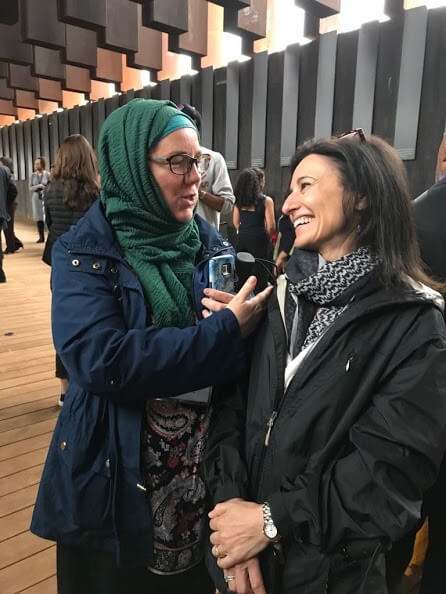
Two “sisters” chatting on an annual Building Bridges Sisterhood trip.
Surprisingly, the Sisterhood got its start in Poland. During a 2010 trip there, Sheryl saw anti-Semitic graffiti and sensed a re-emergence of ethnic hatred. “That trip had an emotional impact on me,” says Sheryl. “It was probably not coincidental that my first grandchildren had just been born. I couldn’t bear the notion that these babies were going to grow up being hated. I felt I had a calling; I had to do something.”
‘We realized that our hopes and dreams were identical, that our quest for interfaith engagement between Muslims and Jews was identical.’
A marketing executive, mother of two adult sons, and now grandmother to seven, Sheryl put her professional skills to work to form a network where women could become a force for understanding. Deciding to forge a connection among women of different faiths, she called the imam of The Islamic Society of Central New Jersey, a mosque in South Brunswick, about her plan. He steered her to Atiya Aftab, an attorney, wife, mother of three, and the mosque’s first female chair. At first Atiya did not respond to Sheryl’s calls, thinking with some skepticism, “Who is this Jewish woman who wants to meet a Muslim woman?” But Sheryl persisted, calling Atiya on her home phone and her cellphone. Finally they met at a Starbucks. “It was as if we knew each other forever,” recalls Sheryl. “We were shrieking ‘Oh my gosh, those are my beliefs, that’s how I feel.’ We realized that our hopes and dreams were identical, that our quest for interfaith engagement between Muslims and Jews was identical.”
“We immediately hit it off,” agrees Atiya, and over their coffees, the Sisterhood of Salaam Shalom (the name derives from greetings used in the Muslim and Jewish faiths) was born. “We wanted to forge relationships,” says Atiya, recognizing that women usually face similar challenges as mothers, as daughters, and as wives. “All of those identities and cross-sectionalities, we share them.”
They decided that 12 members would be the perfect number—six Jewish and six Muslim—for their initial gathering. They invited women they knew and let the Contact Theory (a concept developed by a psychologist in the 1950s) guide them. “It says that if you bring two people together who are different, in our case a Muslim and a Jew, for a shared, common goal, and have them meet regularly in a safe space, they will develop respect and trust,” notes Sheryl. “The strength of that relationship impacts how they will view each other’s community. If we could bring every Muslim and Jewish woman in North America together, we could stop hate toward each other and one another’s community and influence others. That is our goal.”
The Sisterhood Gets Stronger
Since the 2016 Presidential election, ethnic and religious organizations have reported an increase in anti-Semitic language in America and a rise in the xenophobic behavior towards Muslims. The Sisterhood, with its monthly meetings and message of inclusion, is growing, too. Since its humble Starbucks start, it’s become a national nonprofit with 150 chapters and 3000 members as well as an upcoming pilot program for teenage girls. Typical of the cultural sharing that takes place, Muslim women and their families share Passover dinner with Jewish women, who in turn break Ramadan fast with their Muslim sisters.
‘It is more important than ever for our communities to build understanding and jointly combat all forms of bigotry.’
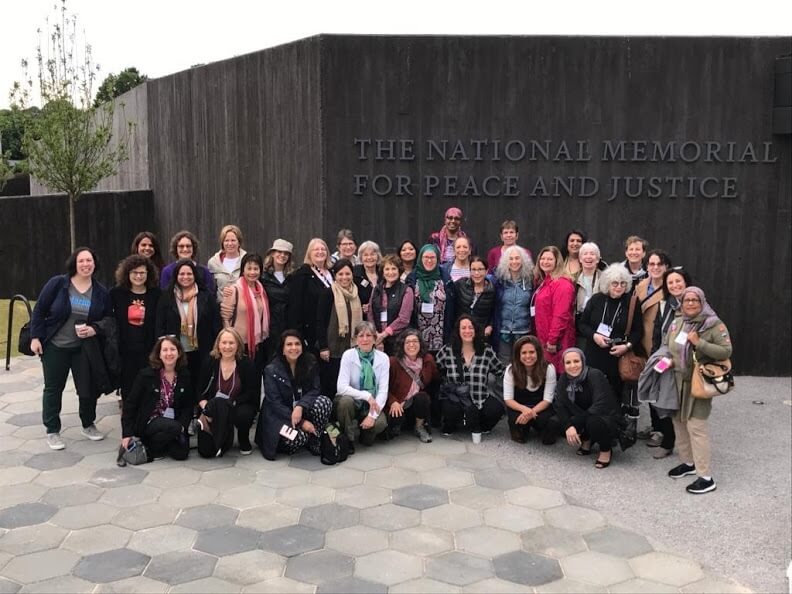
Pushing back against hate: The Sisterhood’s Spring 2018 Building Bridges trip to the American South.
At the Sisterhood’s annual conference, “almost 700 Muslim and Jewish women, the largest gathering of Muslim and Jewish women in North America, all to stand up against hate,” explains Sheryl. The conference includes workshops focused on overcoming differences. One from a prior conference was entitled “How To Talk To A Bigot.” Commenting on the influence of the Sisterhood, Joshua Cohen, New Jersey Regional Director of the Anti-Defamation League (ADL), which has also led its own workshop at a Sisterhood conference, wrote in an email “that each of us can have an impact on others, and ultimately on the world in which we live. At a time when we are seeing increasing incidents of anti-Semitism and Islamophobia, it is more important than ever for our communities to build understanding and jointly combat all forms of bigotry.”
The Sisterhood also hosts a Building Bridges trip annually, which in the past has taken members to Albania, Bosnia, and Azerbaijan. This year it took members to the American South—from the Martin Luther King Center to the Rosa Parks Museum, from First Street Baptist Churches to Edmund Pettus Bridge—on a civil rights and social justice journey. The Sisterhood may not be on the Israeli-Palestinian border but it hopes to tear down divides from afar.
Read More: Owning Up to My Own Racism: A First Step To Creating Change
Building New Bonds
“’If you save one life, you save the world,’ that’s in both of our scriptures,” says Atiya of the Muslim and Jewish faiths, “and we really do believe that. When you see life from that perspective, you see the whole world in a different way, in a way of hope and peace and love.”
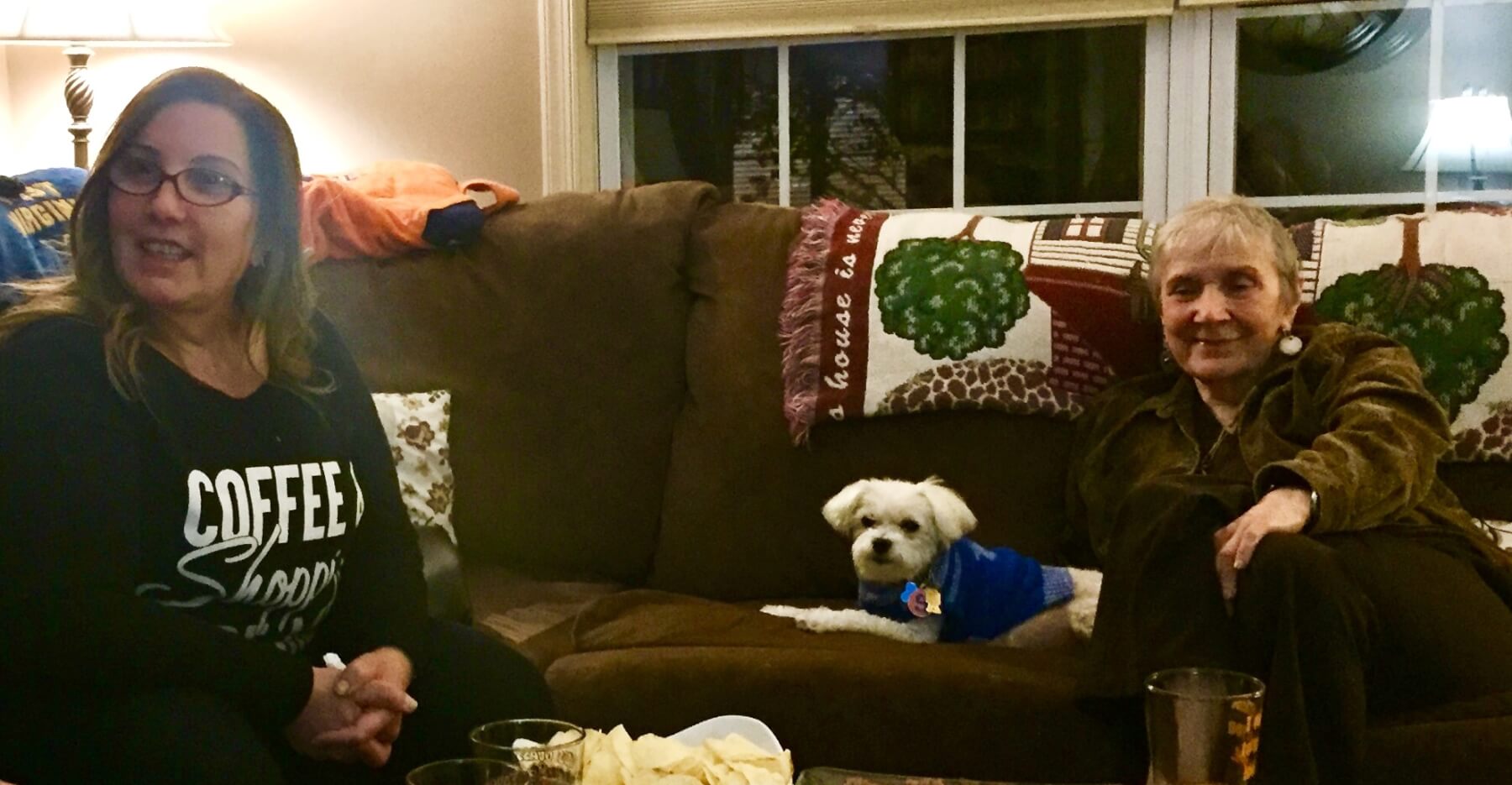
Adla Karim (left) and Shuey Horowitz, bonding and having a bite at the Hillsborough Sisterhood meeting. Image: Eileen Stukane
As the evening wound down at the Hillsborough chapter of the Sisterhood, Adla suggested that the next meeting be at her home to break the fast on a day during the month of Ramadan, the holy month for Muslims, when all pray to be closer to God. She explained that the fast is often broken by drinking milk or water and eating dates to boost blood sugar. Fern, Shuey, and Marsha chatted with Adla to plan the Ramadan meal as a sense of cheerful camaraderie filled the room. Person by person, one by one, relationships were being woven and understanding embraced. The Sisterhood was weaving its magic.
For more about the Sisterhood of Salaam Shalom visit their website here and their Facebook group here.
All photos courtesy of the Sisterhood of Salaam Shalom unless otherwise noted.
A version of this story was originally published in July 2018.
Further Reading
The Faith Club: A Muslim, A Christian, A Jew—Three Women Search for Understanding

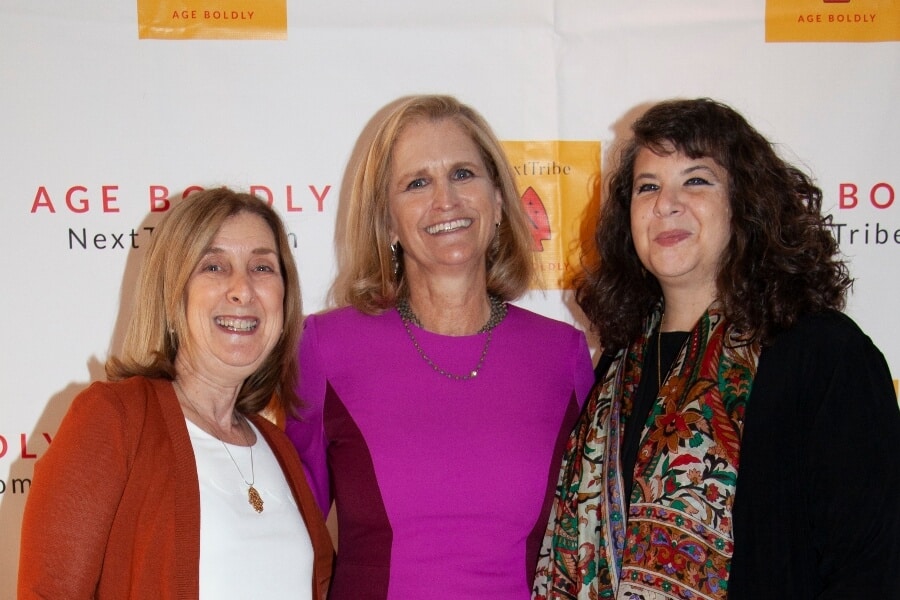
















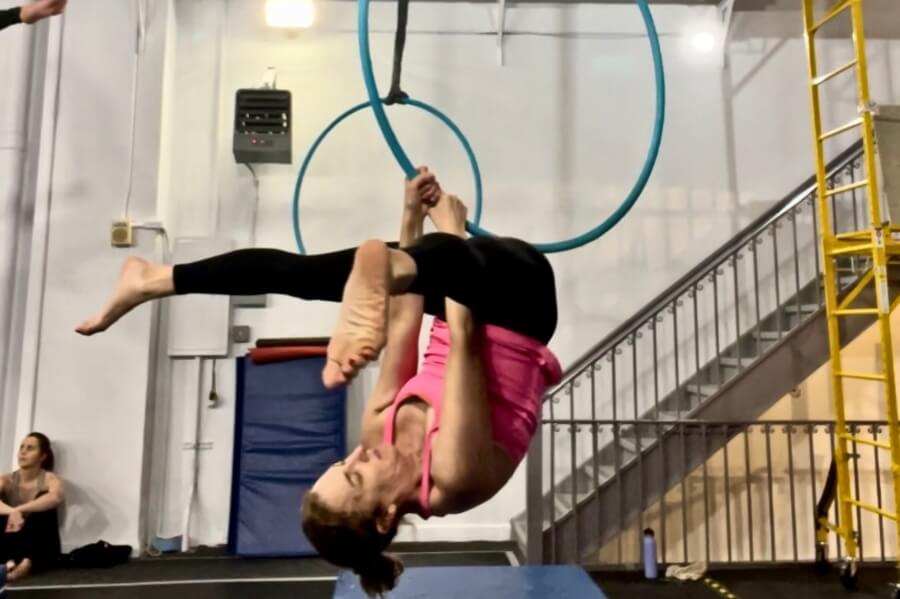
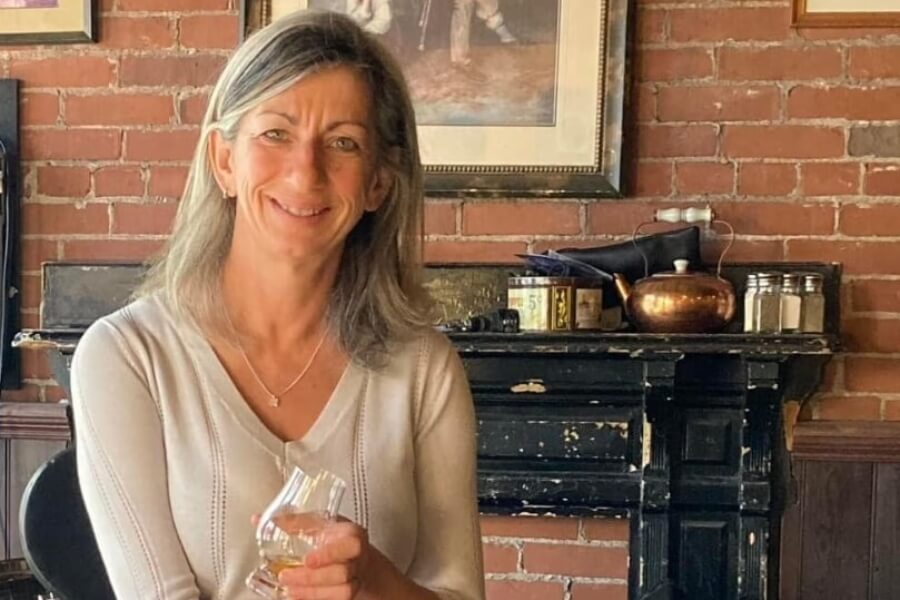
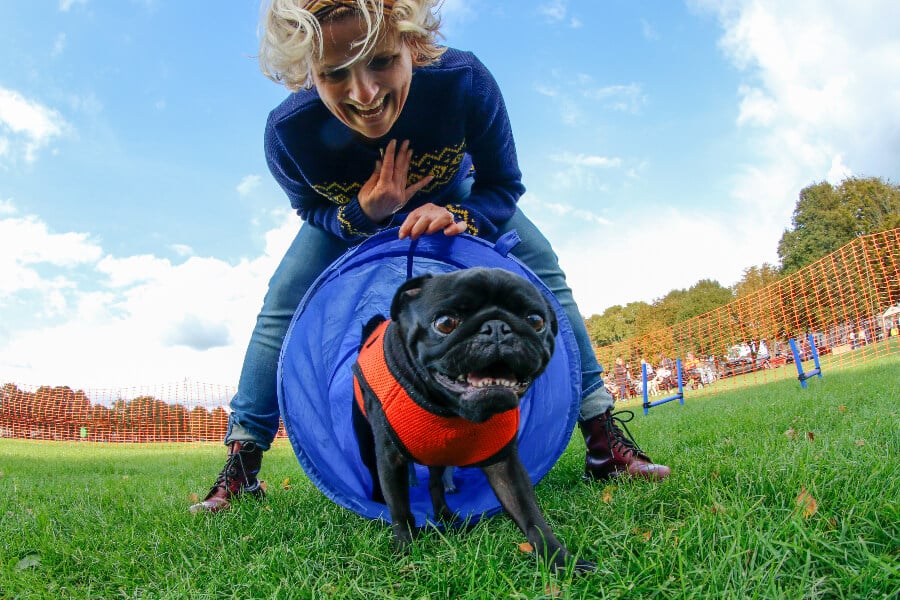
0 Comments